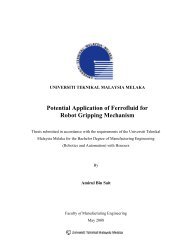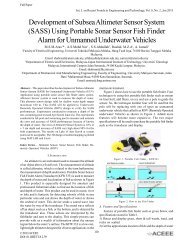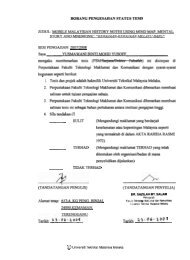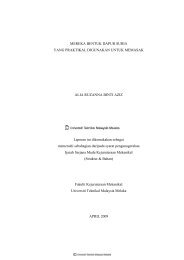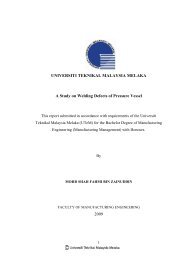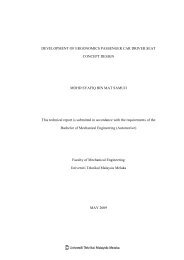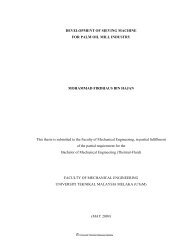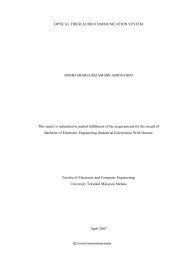Brand, Identity and Reputation: Exploring, Creating New Realities ...
Brand, Identity and Reputation: Exploring, Creating New Realities ...
Brand, Identity and Reputation: Exploring, Creating New Realities ...
You also want an ePaper? Increase the reach of your titles
YUMPU automatically turns print PDFs into web optimized ePapers that Google loves.
CSR are the ideals <strong>and</strong> ethics of corporations. Thus, it is argued that ethics, as a doctrine or philosophy, acts as a bridge<br />
to the concepts of CI <strong>and</strong> CSR. Hence, underst<strong>and</strong>ing the ethical dimension associated with CI allows researchers an<br />
insight into how corporations seek to behave responsibly (Fukukawa et al., 2007). In terms of theoretical development,<br />
there is ‗real merit‘ in examining ethics <strong>and</strong> CSR through the lens of the constructs of CI since the ethical dimension<br />
associated with CI represents a facet which reflects the reality of the corporation: who the organisation is <strong>and</strong> what it<br />
st<strong>and</strong>s for.<br />
Therefore, this research aims to:<br />
Explore the meaning of the concept of CI.<br />
Gain insights into the nature of CSR <strong>and</strong> business ethics.<br />
Explore the relationship between CI <strong>and</strong> CSR; how CSR is articulated in CI,<strong>and</strong>; the way business ethics<br />
interfuses with CI <strong>and</strong> CSR.<br />
Method<br />
The study deployed a qualitative approach, using semi-structured depth interviews with 24 individuals from fourteen<br />
multinational companies in the UK, as well as with three public relations (PR) agency executives who worked closely<br />
with these firms in related areas.<br />
Interviews were aimed at senior managers responsible for the CI mix (van Riel <strong>and</strong> Balmer, 1997), as well as CSR<br />
management. These included three interviewees holding a marketing position, nine from communications, nine in the<br />
domain of CSR, one from general management, <strong>and</strong> three directors of public relations (PR) agencies.<br />
The companies involved in the study came from a broad spectrum of industries, including one automotive, one bank,<br />
one broadcasting, five food & beverage, three food & drug, one healthcare, one IT, one telecommunications, one<br />
tobacco <strong>and</strong> three PR consultancies.<br />
The interview sample was chosen purposively <strong>and</strong> an interview schedule designed <strong>and</strong> followed to guide the interviews<br />
<strong>and</strong> gain insights about research objectives. This study utilized Nvivo8, a computer-assisted qualitative data analysis<br />
software (CAQDAS), in analysing the data.<br />
Major Findings<br />
The findings revealed both partial views of the meaning of CI, i.e. corporate logo <strong>and</strong> other forms of symbolism used by<br />
the organisation; corporate image; <strong>and</strong> corporate reputation <strong>and</strong>/or corporate values, as well as a more comprehensive<br />
<strong>and</strong> broader view of the concept of signposting ‗what the organisation is/what it st<strong>and</strong>s for‘, thus, reflecting a<br />
multidisciplinary perspective encompassing internal <strong>and</strong> external orientation of a wide array of elements which<br />
represented the identity of the organisation.<br />
The findings provided evidence that CI <strong>and</strong> CSR were fundamentally connected. CSR initiatives were apparently<br />
integrated into what organisations do (i.e. buying, selling, hiring, firing etc) <strong>and</strong> manifested through one or more<br />
elements of corporate identity mix including corporate behaviour, corporate culture, values, history, founder of the<br />
organisation, mission statement, <strong>and</strong> communications.<br />
Business ethics was recognised as a prerequisite <strong>and</strong> essential element of CSR, which also encompassed economic,<br />
legal, environmental <strong>and</strong> social responsibilities.<br />
Most interviewees from the various industries revealed that CSR was central to their organisational values, where<br />
sustainability as well as ethical values (i.e. honesty <strong>and</strong> trust) were pillars of organisational values <strong>and</strong> embedded in<br />
cultures. In addition, CSR initiatives were aligned to the overall mission/aim of corporations, <strong>and</strong> embraced through<br />
corporate communications which reflected the inherent values of organisations encompassing sustainability <strong>and</strong> social<br />
responsibility that underpinned the delivered messages.<br />
Importantly, CSR activities were considered a facet of corporate behaviour which together with managers‘ <strong>and</strong><br />
employees‘ behaviour; their interactions with each other <strong>and</strong> with the public, were important elements in shaping CI<br />
<strong>and</strong> representing the personality of the br<strong>and</strong>/corporation that underpinned <strong>and</strong> supported the portrayal of the<br />
organisation.<br />
Implications<br />
The key implication of this study is that it potentially charts new directionality in both theory <strong>and</strong> practice <strong>and</strong> extends<br />
the current discourse on CSR <strong>and</strong> CI studies. For practitioners, this could enable organisations to engage more actively<br />
in CSR <strong>and</strong> ethics programmes to ensure that not only do they comply with regulations but also that their CI is one<br />
which is favourable to its stakeholders <strong>and</strong> commercial environment (Cornelius et al., 2007). Based on these nascent<br />
qualitative findings, a major positivist study will be undertaken in Spring 2011, to test a series of hypotheses relating to<br />
CI, CSR, <strong>and</strong> business ethics.<br />
References:<br />
1. Atakan, M. <strong>and</strong> Eker, T. (2007) Corporate <strong>Identity</strong> of a Socially Responsible University - A Case from the Turkish Higher Education Sector.<br />
Journal of Business Ethics 76: 1, pp. 55.<br />
2. Balmer, J. <strong>and</strong> Wilson, A. (1998) Corporate identity: there is more to it than meets the eye. International Studies of Management <strong>and</strong><br />
Organisations 28: 3, pp. 12–31.<br />
27



